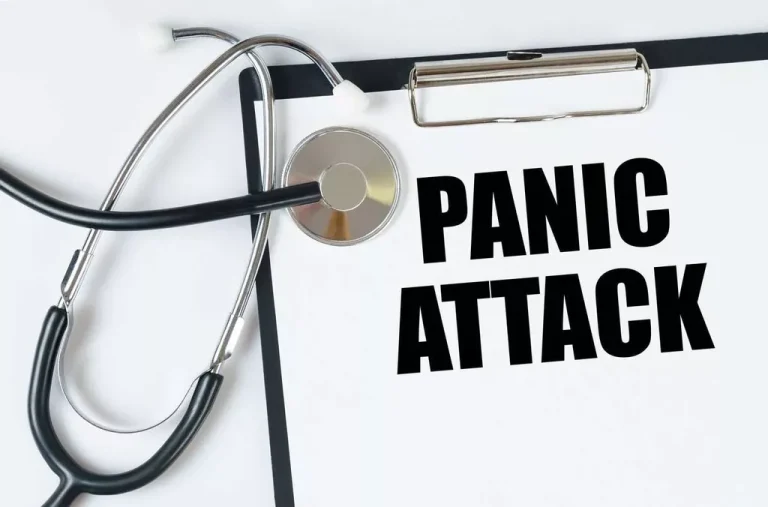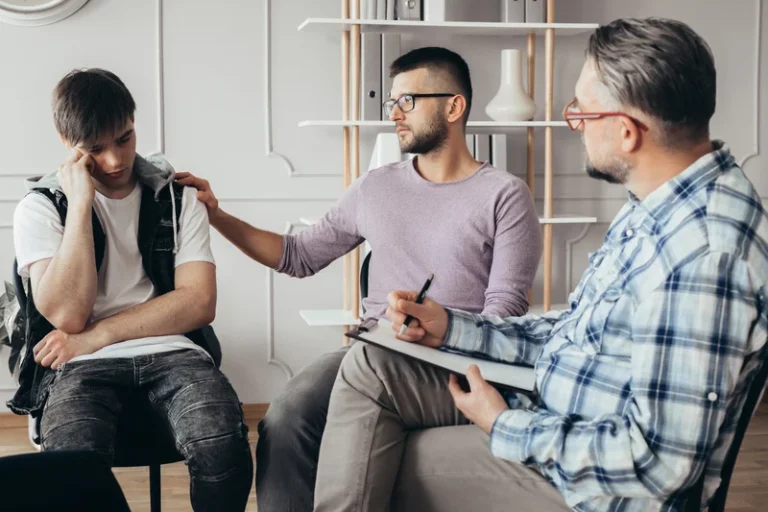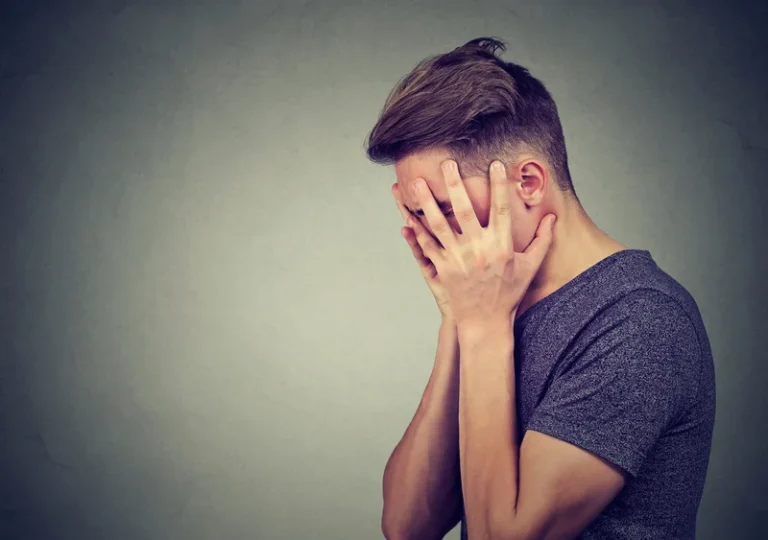Alcohol and anxiety: a dangerous combination

If you have turned to alcohol to reduce stress, you are not alone. According to a study published in the Archives of General Psychiatry, approximately 13% of US adults admitted to consuming at least one hard drink during the year to relieve stress or anxiety. The researchers also noticed people with panic attacks who self-medicated with liquors were 2 to 5 times more likely to develop psychological problems in the future than patients who stopped drinking. Let’s talk about whether there is a link between alcohol and anxiety and how to reduce panic.
The definition of anxiety, its types, and symptoms
Most people experience anxiety at least a few times, such as before an important exam or at the doctor’s office. It is a natural reaction of the human body to a situation that frightens it. Under normal conditions, such a sensation disappears when the stress factor is removed.
When anxiety persists, you may experience fear that does not go away with time and does not depend on external factors. If symptoms prevent you from functioning normally, it indicates a psychological disorder. These are dangerous conditions if left untreated and are often a reason for self-medication with alcohol. Anxiety is not a monolithic affliction; doctors distinguish several main types of deviations:
- Generalized anxiety disorder: the main symptoms are chronic fear of the mundane interfering with everyday life. Such a disease is diagnosed if symptoms occur almost daily and last at least six months.
- Panic disorder: characterized by recurring attacks, which are sudden, debilitating feelings of fear. Sometimes people think they have a heart attack. Signs include chest pain, shortness of breath, the sense of imminent death, tachycardia, etc.
- Social anxiety disorder: it used to be called social phobia; it includes panic and fear in various social situations, such as speaking in front of an audience. A person is afraid people will negatively evaluate her behavior.
All phobias have a common symptom: they force the human body into fight or flight mode and activate the production of hormones so that we are ready to run or fight back.
Anxiety disorders may also cause fatigue, trouble concentrating, dizziness, nausea, and more. If we speak about alcohol and anxiety, drinking affects the fight-or-flight response; it makes you more vulnerable to panic.


Take back control of your life and start on the road to recovery now.
Key triggers for anxiety
Millions of children, teens, and adults worldwide will experience an anxiety disorder at some point. No one knows what causes such an ailment, but it can be associated with a genetic predisposition, environment, constant stress, trauma, etc. Scientists constantly try to find more information about these connections. The most common causes of anxiety are:
- Chemical stimulants, including caffeine, cocaine, and amphetamines.
- Various injuries.
- Physical health problems, especially chronic conditions or life-threatening illnesses.
- All sorts of mental illnesses, e.g., depression.
- Side effects from medications.
- Stress and addiction are linked.
- There is also a connection between alcohol and anxiety.
Today, no laboratory analyses can be used to diagnose anxiety disorders definitively, although some tests can be done to rule out physical problems. Your doctor refers you to a psychiatrist or psychologist who will use special diagnostic techniques and ask questions to understand what disorder you may have.
How do strong drinks work?
Many people see the link between alcohol and anxiety because liquors allow them to relieve stress. Such a statement has some truth because hard drinks act as sedatives and antidepressants that affect the nervous system.
After the first drink, you feel how fear disappears, and all problems seem insignificant. It makes you more confident, improves your mood, and relaxes you.
If the doctor approves, you can occasionally have a glass of wine. But it is important to remember that as alcohol is consumed, tolerance to its anti-stress effect increases. Thus, overcoming fear will become increasingly difficult.
Sometimes people wonder, does alcohol cause anxiety? Regular use of strong drinks may seriously affect physical and psychological health. Over time, constant exposure to ethanol in the body can lead to clouding consciousness, memory problems, and brain damage (especially against another ailment, e.g., liver disease).
The relaxation that occurs when drinking hard drinks is related to the blood alcohol content (BAC). If BAC increases, a person feels a surge of energy for a specific time, but if this indicator decreases sharply, a feeling of depression occurs.
Can alcohol increase anxiety?
Alcohol affects the levels of neurotransmitters in the brain, which often increases anxiety. In reality, you may feel uneasy when the action of hard drinks starts to wear off. The disorder caused by the activity of ethanol lasts for several hours or days. The link between alcohol and anxiety occurs in 6 main areas:
- Mood: drinking liquors affect mood by altering serotonin levels. This central nervous system neurotransmitter is associated with sexual activity and function, appetite, sleep, learning ability, temperature control, and social interaction.
- Low sugar or glucose levels: people who abuse alcohol can drop their blood sugar levels, leading to dizziness, weakness, tremors, numb limbs, and blurred consciousness. These signs also often provoke anxiety.
- Dehydration: although this ailment is not directly related to fear, dehydration causes nausea, headaches, feelings of fatigue, muscle weakness, and a state close to fainting. These unpleasant sensations exacerbate anxiety.
- Nervous system: a person may experience hyperactivity if the body tries to fight off the sedative effects of alcohol, and such changes lead to nervous system disorders. The main signs of such diseases include trembling hands, trouble sleeping, and sensitivity to light or loud noises.
- Tachycardia: under the influence of strong drinks, the heart muscle begins to contract more often, so your brain may be in a state of anxious expectation.
- Concentration: due to the use of large amounts of alcohol, confusion can occur, which only increases panic.
Many wonder how quickly the constant excitement and fear disappear after giving up alcohol. It depends on many factors, but as a rule, if a person receives the necessary treatment, which includes taking medications and different services, anxiety can go away within a few months. However, there are times when panic attacks take years to heal. Experts make predictions about recovery timing and return to life without alcohol and anxiety only after additional research has been carried out.

The connection between alcohol and panic attacks
If you feel sharp, intense anxiety and fear – these are the main symptoms of a panic attack. Other signs of the disorder include tachycardia or a feeling of weakness, dizziness, and nausea. Panic attacks last from 5 to 30 minutes. They may scare a person, but they are not particularly dangerous and should not harm you much. If you notice a connection between alcohol and panic attacks, you must abandon liquors.
Alcohol has a powerful effect on brain chemistry – it triggers panic attacks through its effect on gamma-aminobutyric acid (GABA). This organic amino acid is a critical inhibitory neurotransmitter in the central nervous system. Liquors in small doses stimulate GABA and cause a feeling of relaxation; however, large amounts of ethanol deplete gamma-aminobutyric acid, causing intense tension and panic attacks. Sometimes severe bouts of anxiety are also caused by a sharp rejection of alcohol.

This can be a difficult journey, but you don’t have to go it alone. Let us be your guide and provide you the environment needed to regain control of your life and begin the path to recovery.
Anxiety treatment methods
The only way to stop experiencing the anxiety associated with consuming hard drinks is to stop drinking or significantly reduce the dose. However, the effectiveness of such measures depends on whether your panic attacks are related to the underlying disorder you are treating with liquors or whether it is caused by ethanol exposure. There are several options how to stop anxiety after drinking alcohol:
- Remain calm and give yourself time to rest. Reassure yourself this is a momentary sensation; it will soon pass.
- Eat right and regularly.
- Try to think positively in every situation.
- Concentrate on something that pleases you until anxiety symptoms begin to disappear.
- Set aside time each day to relax. Stress management techniques, e.g., deep breathing, yoga, and muscle relaxation, are incredibly beneficial in treating panic attacks.
- Find an available activity that brings you joy, e.g., listening to music or drawing.
Sometimes people need more serious support and therapy to return to a quiet life without alcohol and anxiety. Consider what types of treatment for anxiety disorder exist.
- Psychotherapy helps people cope with the behavioral and cognitive aspects of anxiety. For example, cognitive behavioral therapy teaches people to identify negative thoughts that trigger panic. Exposure therapy involves introducing people to what they are afraid of and discussing relaxation techniques.
- Doctors sometimes prescribe medications to relieve symptoms of alcohol and anxiety problems. So, antidepressants change the level of neurotransmitters in the brain, reducing fear. Benzodiazepines act instantly and are often used to improve the patient’s condition in the short term. Beta-blockers normalize blood pressure, but they also relieve some anxiety symptoms.
- Coping strategies focus on ways to manage panic more effectively. They provide for beneficial lifestyle changes; in addition to giving up alcohol, a person limits caffeine intake and pays more attention to proper rest and physical activity.
If you use alcohol and anxiety goes away, you may find it works in the short term to improve your mood, but consuming hard drinks may cause severe challenges for a long time. When a person has a psychological disorder, liquors exacerbate the symptoms.
If you are feeling anxious and consume strong drinks to alleviate this, you should seek help from a mental health professional. It is never too late to start treatment if you want to eliminate the psychological ailment caused by alcohol abuse.




